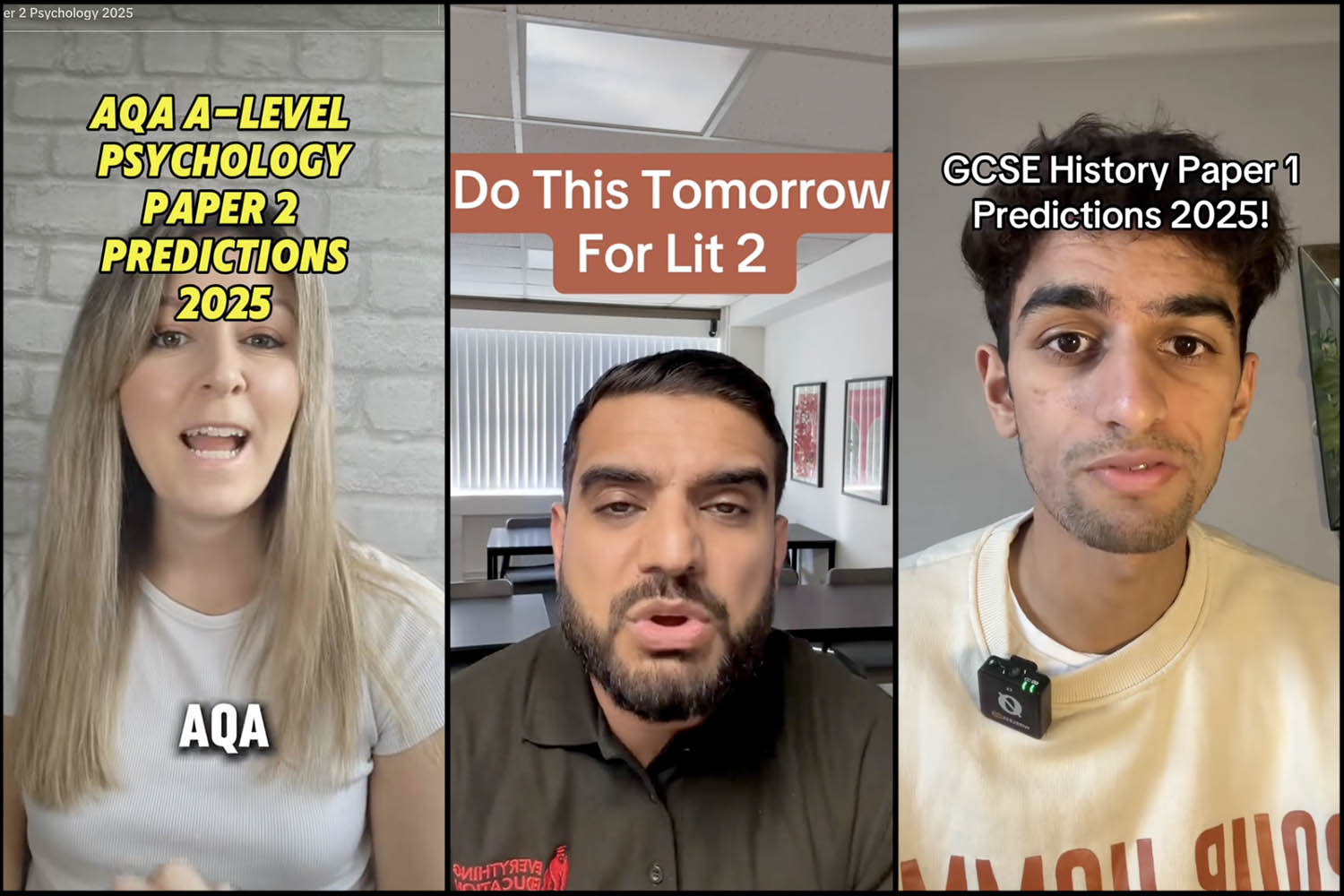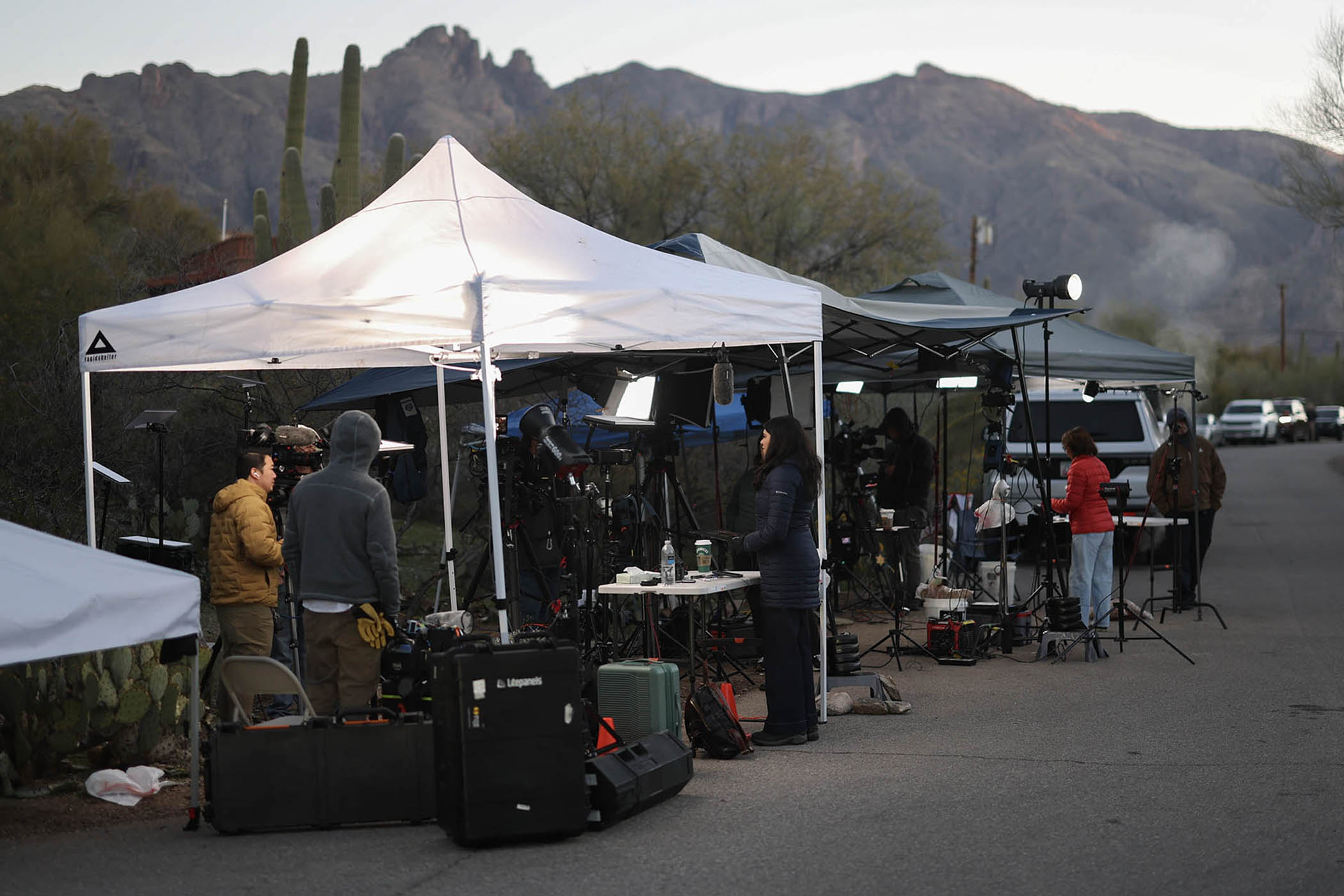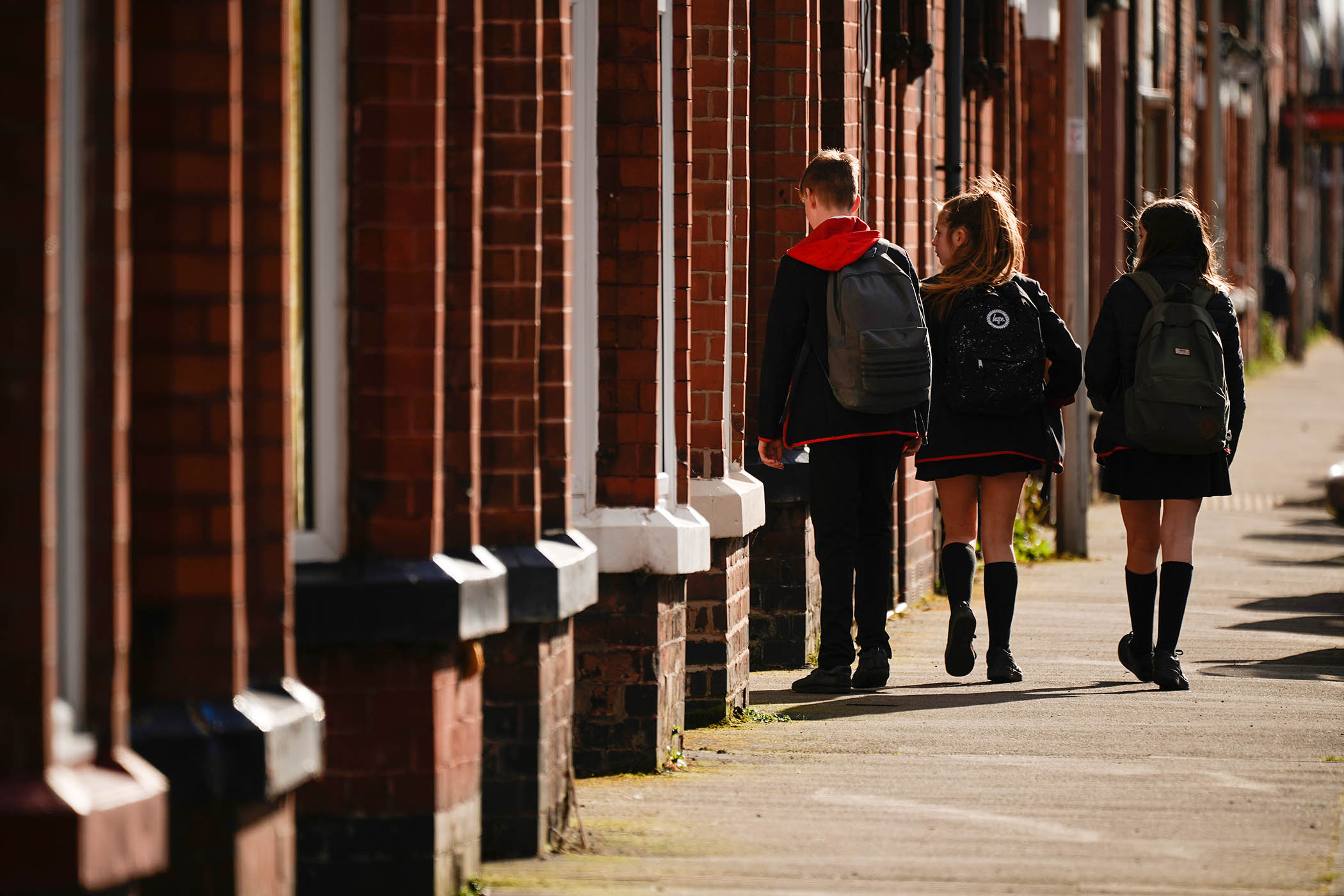Teachers are warning that teenagers are being seduced by TikTok influencers predicting what will be on their GCSE or A-level exam papers – and often getting it wrong.
The high-stakes summer exams are now in full swing, and schools say they are having to work harder than ever to counter the influence of social media videos offering enticing revision shortcuts, some of which have over a 100,000 likes.
Clicking on a video on revision techniques can prompt algorithms to direct students to influencers – some of them current or former teachers – to question predictions that look legitimate but are really guesses, one senior teacher says.
“The pupils who come unstuck are those who go in hard on revising only what some TikTok ‘expert’ says will come up,” said Thomas Michael, deputy safeguarding lead at a secondary school in the West Midlands. “I’ve talked to some who are gutted because they did that.”
This week a sixth-former currently sitting his A-levels tried to persuade Michael that the predictions he had seen online were reliable as they were based on probability and an analysis of past papers.
“I told him to ignore this person and just revise everything,” he said.
There are advice videos spanning a wide range of this summer’s exams on TikTok and YouTube.
However, one of the first GCSE English literature papers has prompted a high number of despairing comments from teachers on X, many of whom discovered afterwards that pupils had ignored two years of deeper learning and focused their revision too narrowly, thanks to advice they had watched online.
One prominent video by a former teacher who works for a commercial study resource service, netted more than 120,000 likes for its predictions on what would come up based on patterns in previous years, with endorsements from pupils saying he saved them last year.
But it also featured comments from disappointed students after the exam took place.
Newsletters
Choose the newsletters you want to receive
View more
For information about how The Observer protects your data, read our Privacy Policy
One response, liked by more than 700 others, said: “He guessed wrong.” Another student posted: “Who else is here after he predicted it wrong?”
Michael said he was “disappointed” that some of the prediction videos attracting most attention are posted by teachers.
“This is just exploiting kids when they are scared, often to make money.”
Dr James Shea, principal lecturer in teacher education at the University of Bedfordshire, who is conducting research into how much teenagers rely on social media in their revision, said: “No self-respecting 16-year-old won’t use technology when they are revising, as this is their world.”
Shea argued that an “overloaded” curriculum at GCSE level was putting more pressure on students to seek out shortcuts and treat exam preparation like “a high-stakes gamble”.
He called on teachers to show the videos in class and talk about why social media is generally a “dangerous” revision guide, because “there is no quality control”.
Shea advised parents to explain to teenagers that examiners devote a lot of time to making sure that their exam questions are as hard to predict as possible.
He added: “An exam marker is given a pile of answers to the same question, so they do notice when a word like ‘juxtaposition’ keeps cropping up because everyone watched a video recommending using it.”
The head of English at a secondary school in Cornwall, who asked not to be named, said: “There will always be some kids looking for the magic bullet, usually because they haven’t prepared properly.”
His school has been active talking to pupils about why some of the revision information online is “dangerous, not only because it narrows your revision too much, but also because some of it is actively wrong”.
One of the most prominent teachers posting tips on GCSE English had been showing students an outdated GCSE mark scheme, he said.
“He is promising that if you talk about certain things you will get a grade 9, but he is completely wrong.”
The teacher said that he worried most about students being persuaded to answer a paper in a completely different way from how they have been taught, which “can mess up two years of careful preparation overnight”.
“Kids are more trusting of what they see online now,” he added.
“It’s a bigger battle this year than ever before.”


